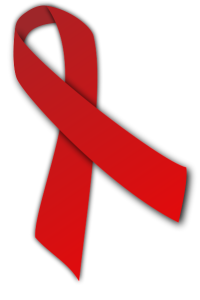By now, unless you are living under a rock you know it is World AIDS Day. Today holds a special place in my heart, I was born in the 80s when HIV-contaminated blood products were a huge concern. I grew up understanding those risks and how special it was that my dad’s co-workers donated blood for my brother when he was born. From a very early age I knew about HIV/AIDS from the stories I heard about the blood drives, I never knew about the social stigmas attached to the disease. Just that at the time it was considered a death sentence.
Fast forward through high school health class and guest lecturers. All of the sudden HIV was the disease that came from sex. It was dirty, it was tied to morals, it was wrong. The disease I thought I understood had been transformed into a scare tactic by people who did little to actually present teenagers with factual evidence. It was just: have sex and you could get HIV and die. This was far from the truth, and not everyone who has HIV/AIDS acquired the virus through sexual activities. Many of the people living with HIV became infected through contaminated blood products. A threat that all people with bleeding disorders face.
Today I challenge everyone, regardless of what health issues you have, to read some stories about people living with HIV/AIDS. It takes a lot of guts to discuss your status in a world that holds such strong opinions against those who are fighting the disease. Part of that blame lies on people who used HIV/AIDS as a tool to promote abstinence, which just spread misinformation instead of actually preventing teenagers from having sex. There is so much hope for the future of HIV/AIDS research. It is vital to remember that advances in medicine for blood disorders help all of us, even if you don’t have that specific disease. I make a point to keep up to date on the latest HIV/AIDS research news, because a cure could mean potential pathways for doctors to end ITP as well.
Today is also a grim reminder of how many lives were lost due to the stigma surrounding HIV/AIDS. So many people died because of a lack of knowledge, treatment options and straight denial. HIV/AIDS is not a “gay” problem. It is not a problem for people with blood disorders, or those who have questionable morals, or people that live in Africa. HIV/AIDS is a global issue, it makes a mark on every neighborhood in America, in every city, even in the most remote corners of the world. We have to remember that until there is a cure, people will still suffer and there are still multiple ways people can become infected. As someone who receives blood products, I am invested in finding a cure for HIV/AIDS.

